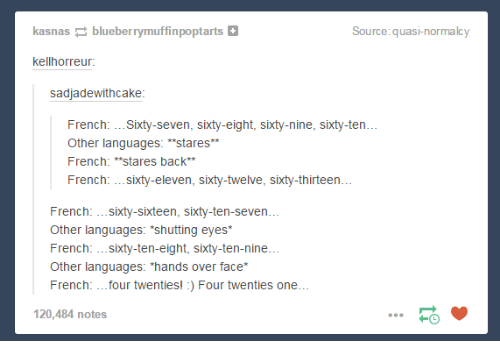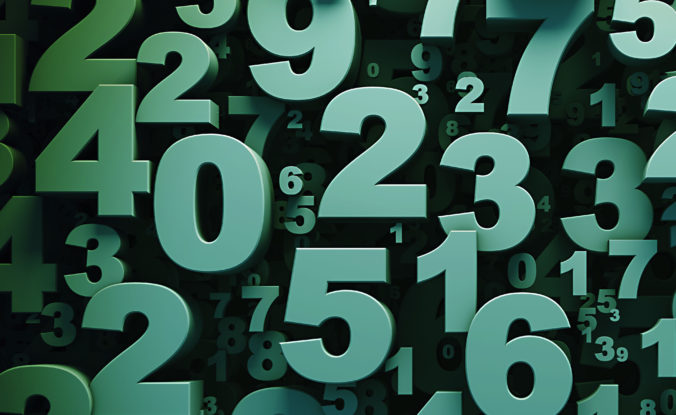One, two, three… Sounds simple, doesn’t it?
And yet different languages express numbers in very different ways. How are they handled in our brains? And how did –illion get to be the suffix for truly astronomical sums?
Linguist Daniel Midgley runs the numbers on this episode of Talk the Talk.
Listen to this episode
You can listen to all the episodes of Talk the Talk by pasting this URL into your podlistener.
http://danielmidgley.com/talkthetalk/talk_classic.xmlPromo
Cutting Room Floor
Kylie’s off talking to the BBC, so Ben and Daniel talk Daylight Savings. We find out what your teaching style says about you. And after a discussion of Pirahã and French numbers, Ben gives the Ultimate Nerd Test. (Daniel fails.)
Patreon supporters
We’re very grateful for the support from our patrons Whitney and Matt. You’re helping us to keep the talk happening!
We’re Because Language now, and you can become a Patreon supporter!
Depending on your level, you can get bonus episodes, mailouts, shoutouts, come to live episodes, and of course have membership in our Discord community.
Show notes
First major database of non-native English
http://phys.org/news/2016-07-major-database-non-native-english.html
Treebank of Learner English
http://esltreebank.org
Is “one, two, many” a myth?
https://numberwarrior.wordpress.com/2010/07/30/is-one-two-many-a-myth/
What Happens When a Language Has No Numbers?
http://www.slate.com/blogs/lexicon_valley/2013/10/16/piraha_cognitive_anumeracy_in_a_language_without_numbers.html
The Munduruku people: Can You Count Your Chickens?
http://www.americanscientist.org/issues/pub/can-you-count-your-chickens
Big and small numbers are processed in different sides of the brain
https://www.sciencedaily.com/releases/2016/03/160304092755.htm
Both hemispheres of the brain process numbers
https://www.sciencedaily.com/releases/2016/01/160127083844.htm
Brain processes which lead to the concept of ‘zero’ on the number line
https://www.sciencedaily.com/releases/2016/04/160421133944.htm
Time and numbers mix together in the brain
http://www.eurekalert.org/pub_releases/2011-07/afps-tan071911.php
Australian Aboriginal enumeration
https://en.wikipedia.org/wiki/Australian_Aboriginal_enumeration
Joan Rivers: her best one-liners
http://www.telegraph.co.uk/culture/comedy/11064386/Joan-Rivers-her-best-one-liners.html
Why Is It ‘Eleven, Twelve’ Instead of ‘Oneteen, Twoteen’?
http://mentalfloss.com/article/76007/why-it-eleven-twelve-instead-oneteen-twoteen
French Numbers 1-100
http://blogs.transparent.com/french/french-numbers-1-100/

Number Systems of the World
http://www.sf.airnet.ne.jp/ts/language/number.html
The Number System of Huli
http://www.sf.airnet.ne.jp/ts/language/number/huli.html
The Number System of Yoruba
http://www.sf.airnet.ne.jp/ts/language/number/yoruba.html
The Number System of Ndom
http://www.sf.airnet.ne.jp/ts/language/number/ndom.html
12 Mind Blowing Number Systems From Other Languages
http://mentalfloss.com/article/31879/12-mind-blowing-number-systems-other-languages
Vocabulary.com: You Be “-Illion”!
https://www.vocabulary.com/articles/dictionary/you-be-illion/
MILLIONS and BILLIONS…..
http://www.dozenalsociety.org.uk/numbers/millions.htm
-Illion Numbers
http://www.polytope.net/hedrondude/illion.htm
Names for Large Numbers
https://www.unc.edu/~rowlett/units/large.html
American / Japanese Higher Numbers
http://www.trussel.com/jnumbers.htm
Public urged to track ‘nurdles’ on Scotland’s beaches
http://www.bbc.com/news/uk-scotland-36211895
Proud to Love Nerds!
http://www.candyfavorites.com/a-nerd-tastic-history
Gaelic: Counting Objects
http://www.irishgaelictranslator.com/articles/grammar/counting-objects/
How to Count to 10 in Irish
http://www.wikihow.com/Count-to-10-in-Irish
Berliner, Krapfen und Pfannkuchen
http://www.zeit.de/zeit-magazin/2014/53/pfannkuchen-berliner-sprache-deutschlandkarte
US Dialect maps:
caramel | pecan
Transcript
We’re working our way back through the archives. If you think we should prioritise a transcript of this episode, let us know!










10 August 2016 at 2:29 am
When you mentioned the number system from Papua New Guinea, I couldn’t help but think of how quickly we rattle off seconds and minutes (base 60) without really computing the actual “real number value” of what we’re saying. For example, if I said “two and a half hours” I’m not really thinking about 9000 seconds. This is strange, but I think that maybe the same is true not just for dozens (I would never calculate 4 dozen if I bought that many eggs, I just simply think “ah, 4 dozen eggs”) or for hours (I never think, “ah, 9000 seconds” only about 2,5 hours) but also for sets of numbers (the base). Adding 50 + 20 is easy because you just adding 5 and 2 sets of 10, but if the base system was 12 the 50 + 20 would become more a little complicated like 24 + 57 is. It seems so normal to think of a base ten system as more fundamental, basic, and simple, but that’s just because we’re not actually doing the math or understanding them as numbers per se, but rather as groups of numbers (4 minutes + 7,5 minutes is easy because we don’t think about it in terms of seconds). Just a little thought I had. P.s. When I was very young kid I remember counting “1, 2, 3, 4, 5, 6, 7, 8, 9, 10, 20, 30, 40, 50, 60, 70, 80, 90, 100, 200, 300… ect.” I don’t know how to work that into all of this, but maybe someone smarter than me can make the connection. Great show 🙂
1 September 2016 at 12:43 pm
50 in a base 12 system would be 60 in a base 10 system, not 57.
And 60 is a pretty cool number, divisable by 1, 2, 3, 4, 5, 6 and 10!